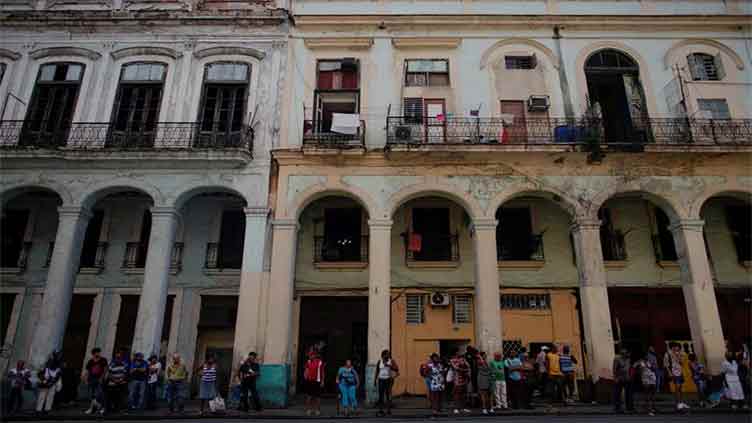Cuba puts brakes on unpopular planned public transportation rate hike

World
Cuba puts brakes on unpopular planned public transportation rate hike
HAVANA (Reuters) - Cuba said late on Thursday it would put off an unpopular proposal to hike fares for public transportation, throwing into disarray its recently announced plan for price rises across the state-dominated economy this year.
The announcement came a day after the communist-run government delayed another controversial five-fold hike in gasoline prices planned for Feb. 1, saying a cyberattack from outside Cuba had thwarted implementation.
"Since the price of fuel remains unchanged, (public) transportation prices will be maintained," Walter Luis Duvergel, director of Viajero, one of the state's transportation companies, told state-run TV late Thursday.
Transportation ministry officials had planned increases in public bus, plane and train transportation fares for March 1, but said those prices would now be put off until further notice.
The delays have upended a wider plan for price increases that the government said was necessary to reign in a ballooning fiscal deficit. Critics have attacked the policies as inflationary, ill-timed and lacking incentives to boost ailing domestic production.
The planned hikes, initially announced in December and early January, rocked Cuba, where residents have long depended on a vast program of state subsidized food, fuel and medicine.
Many Cubans, already strapped for cash amidst a grinding economic crisis and widespread shortages, breathed a sigh of relief following the announcement of the delay.
"It's the least (they could have done)," said Havana resident Ismaray Guevara, 38, who was preparing for a ride in a taxi on Friday. "I hope (the prices) stay as they are, because really our salaries are not enough for anything."
The government has also said it will raise prices in the coming months for liquefied gas, used for cooking, as well as electricity consumed by top-tier users, but has promised to protect the vulnerable from rising costs.


